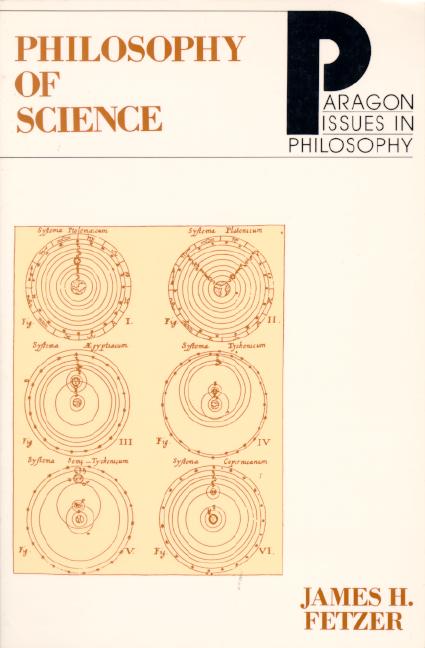In Philosophy of Science, Fetzer investigates the aim and methods of empirical science and examines the importance of methodological commitments to the study of science and the significance of interpretations of probability for understanding laws of nature and scientific explanations. This book offers a welcome framework for investigating the most recent work and the most promising solutions to the central problems that arise within this discipline. The result is a timely introduction to an increasingly important field.
SPECIAL FEATURES:
- Clear, accessible, and comprehensive
- Written by a major contributor to the field
- Broad scope of coverage with concise discussion
- Historical examples skillfully woven into the text
- Companion anthology organized to correspond to the text
Preface
Acknowledgments
Chapter 1. What is Science
The History and Philosophy of Science • File Aim of Science • The Nature
of Explications • The Analysis of Language • The Analytic and the Synthetic
Chapter 2. Laws and Lawlikeness
Lawlike vs. Accidental Generalizations • Support for Counterfactuals • The New Riddle of Induction • Universals anti Dispositions • Permanent Properties
Chapter 3. What are Scientific Theories?
The Standard Conception • The Analytic and the Synthetic (Again) •
The Dogma of Reductionism • The Semantic Conception • The Place of
Provisoes
Chapter 4. Explications of Explanation
The Covering-Law Model • The Statistical-Relevance Model • Long Runs
and Single Cases • The Causal-Relevance Model • Questions about Explanations
Chapter 5. Probability and Inference
The Symmetry Thesis • Chance and Games of Chance • Determinism and
Indeterminism • Frequencies, Propensities, and Personal Probabilities •
Probability as a Guide in Life
Chapter 6. The Problem of Induction
Validation, Vindication, and Exoneration • Rationality, Morality, and
Decision • Frequencies and More Frequencies • The Justification of Induction
• The Fundamental Question about Chance
Chapter 7. The Growth of Scientific Knowledge
Conjectures and Refutations • Normal Science vs. Revolutionary Science
• The Methodology of Research Programs • Inference to the Best Explanation
• Discovery, Inference, and Unification
Chapter 8. The Nature of Scientific Knowledge
Instrumentalism vs. Realism • Naturalized Epistemology • Evolutionary
Epistemology • Paradigms, Change, and Truth • Could Sociology of Science
Be(come) Philosophy of Science?
An Overview
For Further Reading
References
Index of Names
Index of Subjects
JAMES H. FETZER is professor and chairman of the department of philosophy at the University of Minnesota, Duluth. In addition to publishing more than seventy articles and reviews, he is the author of Philosophy and Cognitive Science, Second Edition, Revised and Expanded (1996), the editor of Foundations of Philosophy of Science: Recent Developments (1993), and coauthor of The Paragon Glossary in Cognitive Science (with Charles Dunlop), and The Paragon Glossary in Epistemology/Philosophy of Science (with Robert Almeder), all published by Paragon House.






